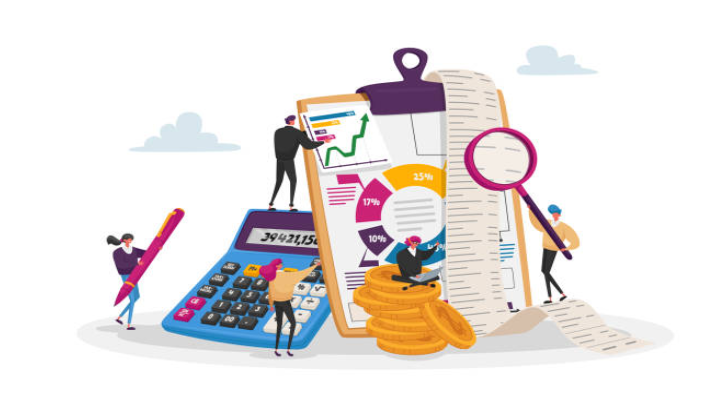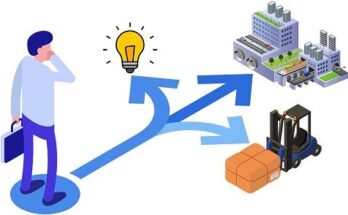Anyone who has ever been in debt is familiar with how challenging it can be. You have additional monthly bills to pay, and interest charges keep raising the total amount you owe. A debt consolidation loan might be your answer if you want something to repay your debt.
In this case, a debt consolidation loan is proven to be very beneficial. After receiving one, you use the funds from the loan to settle your debts. You will only have to repay the debt consolidation loan moving forward.
With this, you might get better payoff terms by combining several loans into one larger one, like a lower interest rate, lower monthly payments, or both. In this article, we will take a deeper look at what debt consolidation can do for you, but first, let’s discuss what exactly debt consolidation is:
What is Debt Consolidation?
Debt consolidation combines multiple high-interest loans, such as credit card bills, into a single lower-interest loan. With Consolidate debts, you can benefit from lower interest rates, more flexible repayment options, and other perks. It significantly reduces your monthly financial burden by lowering your monthly bill payments.
With this, you only must make one loan payment each month rather than several debt payments every month, like credit card bills and loan installments. Because there is only one monthly loan payment, you are less likely to miss or be late with payments.
An illustration of debt consolidation
Let’s take an example to understand debt consolidation better. Assume you have three credit cards with a combined $20,000 balance and an average annual interest rate of 22.99%. To get the balances down to zero over 24 months, you must pay about $1,047 per month and accrue interest of about $5,137.
You would need to pay approximately $932 per month for the same 24 months to pay off the debt if you combined those credit cards into one lower-interest card or loan with an 11% annual rate, and your interest costs would come to an estimated $2,372.
Your payouts would be even lower with a credit card that offers 0% interest, at least during the promotional period.
Reasons To Consolidate Your Debts
- Turn Multiple Payments into a Single Payment
The fact that debt consolidation makes repayment easier is one of its key benefits. You do not have to make multiple payments when combining several debts. Only one monthly payment is needed. As a result, there are significantly fewer cases of missed or late payments.
Debt consolidation makes managing your bills and repayment progress easier, so you don’t miss a payment and jeopardize your credit score. If your goal is to live debt-free, you’ll also better understand when your debt will be repaid.
- Fetches you Lower Interest Rates
Most unsecured debt has high-interest rates that can significantly increase the amount of debt you pay each month, especially if it is a credit card debt. If you have good to excellent credit, you can save money over time by paying off several high-interest debt accounts and consolidating them into one by securing a lower interest rate on your new single account.
When it comes to debt, your credit score is important and plays a significant role in the interest rate you can expect when consolidating debt. In contrast to those with poor credit (300–639), who may end up paying 15–36% on their consolidated debts, those with good credit (720–850) can expect to pay an average interest rate of 4–20%.
- Can Improve Your Credit Score
Another advantage of debt consolidation is that it can help you improve your credit score. Since you’ll lower your credit utilization rate if you consolidate by repaying a personal loan, your score will likely rise within a few months (also known as the credit utilization ratio).
This figure is calculated by dividing your current debt by your credit limit. Your credit utilization rate is 50% if you have $5,000 in total credit available on two different credit cards and a balance of $2,500 on one of them. This is because you are utilizing 50% of the total credit available. Your credit utilization significantly influences your credit score as a whole.
You should also know that obtaining new credit typically results in a small, temporary drop in your credit score. Consolidating your debt will benefit your credit score over the long term and save you money on interest.
- Can Settle your Debt Faster
By consolidating it, you can pay off your debt faster than anticipated. If your loan for debt consolidation has a lower interest rate than other debts, consider making additional payments with the payment you save each month. As a result, you can pay off the loan earlier and reduce your overall interest costs.
- Reduce the Stress
There is less financial stress when there are fewer repayments to worry about. Consolidating multiple debts into a single one will make it simpler for you to manage and pay them back comfortably. You will pay fewer fees and charges for loans if you only have one debt. Additionally, it helps you combine your previous payment amounts and schedules into a single, dependable payment.
Along with these factors, you should know the right circumstances to consider debt consolidation because not all will be favorable. Below we will discuss these circumstances in detail.
When Should You Take Debt Consolidation
- The amount owned is large: You should consider debt consolidation if your debt has grown significantly and is difficult to manage. The lower interest rate will speed up debt repayment by lowering cash outflow.
- You need to improve your finances: Your ability to plan more effectively increases when you are less anxious about your debts. Perhaps you can invest some of the funds and earn some money.
- The credit score is low: Your credit scores can be affected by high debt. So if you want to raise your credit score, debt consolidation may be a good idea. You must have a strong credit history to apply for a new loan. A high credit score is necessary to obtain favorable loan terms and lower interest rates.
- Debts affect monthly cash flow: You must devise a plan to pay off your debts if you have racked up a sizable amount of debt, and it impacts your monthly cash flow. Consolidating your debt can help you pay off your loans more quickly.
Conclusion
Using debt consolidation as a strategy can help you pay off debt faster and spend less on interest overall. If all of your previous payments and fees are put together into one loan with a specific end date, you might find it simpler to understand exactly how much you owe and how much time is required to pay it off. You should speak with your lender and weigh your options before using a debt consolidation strategy.




